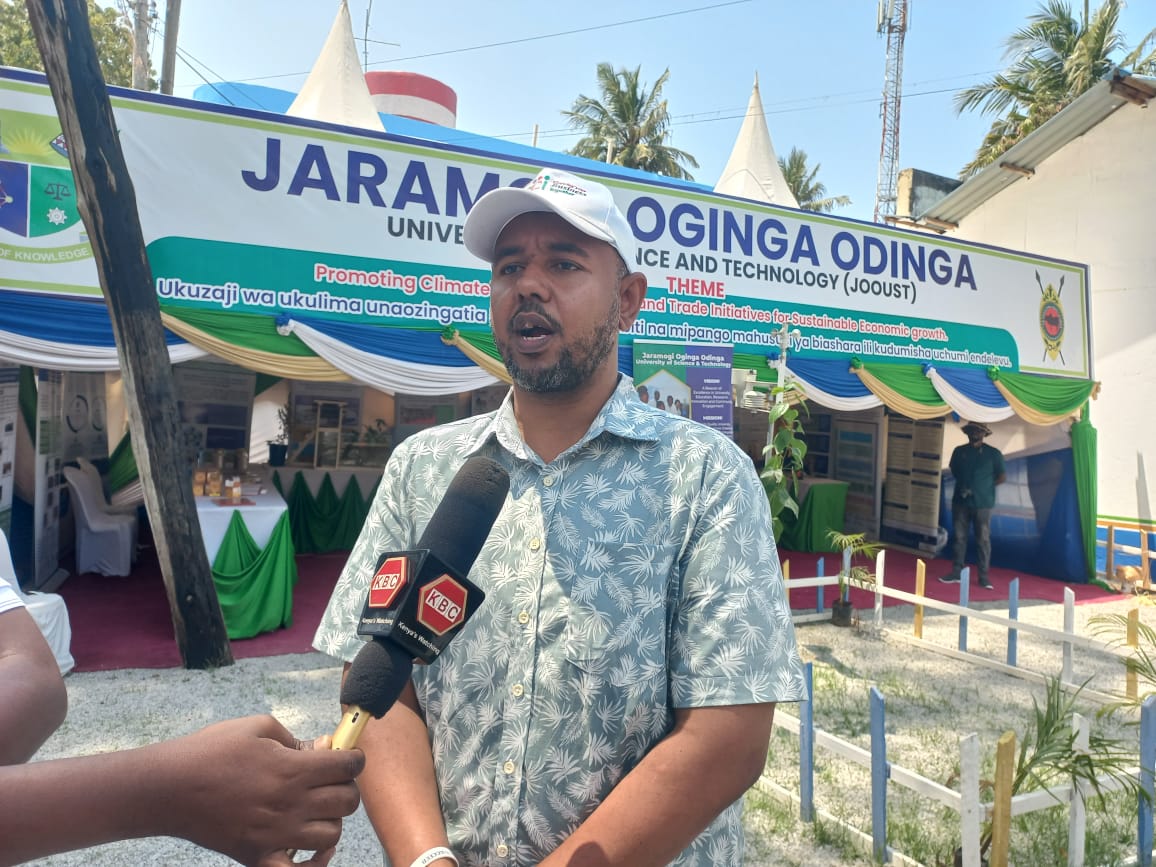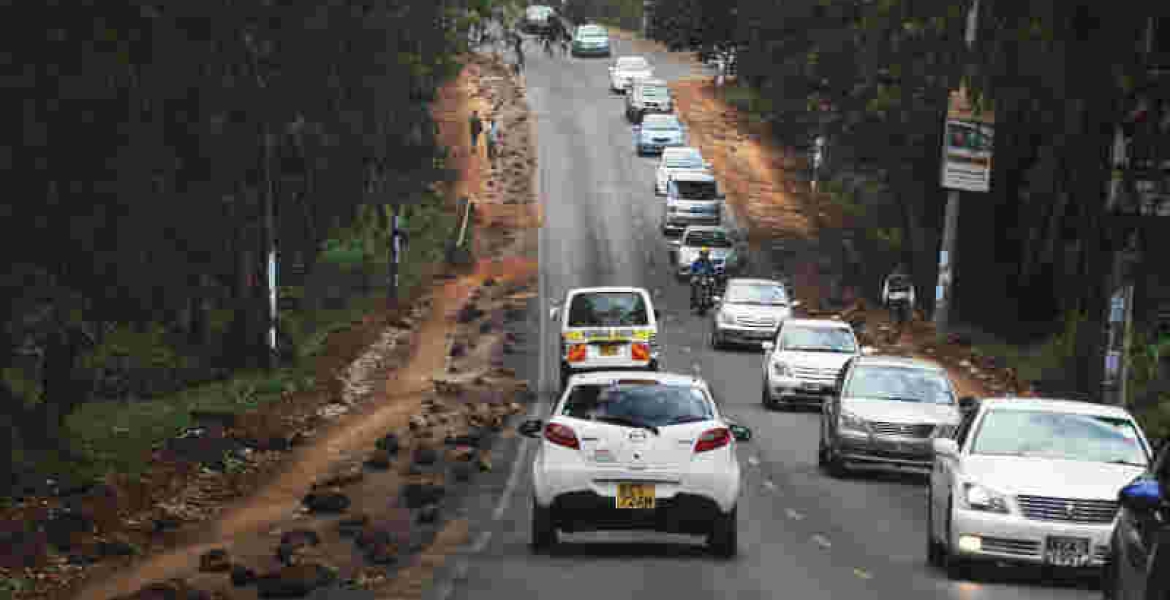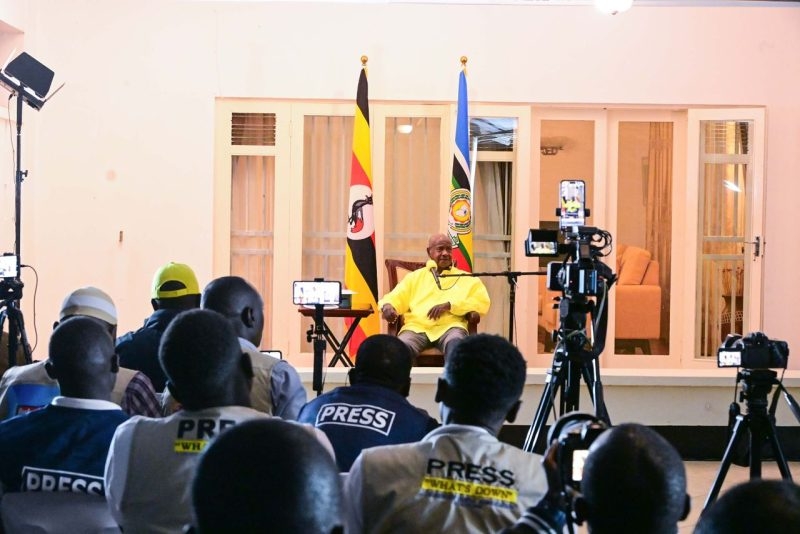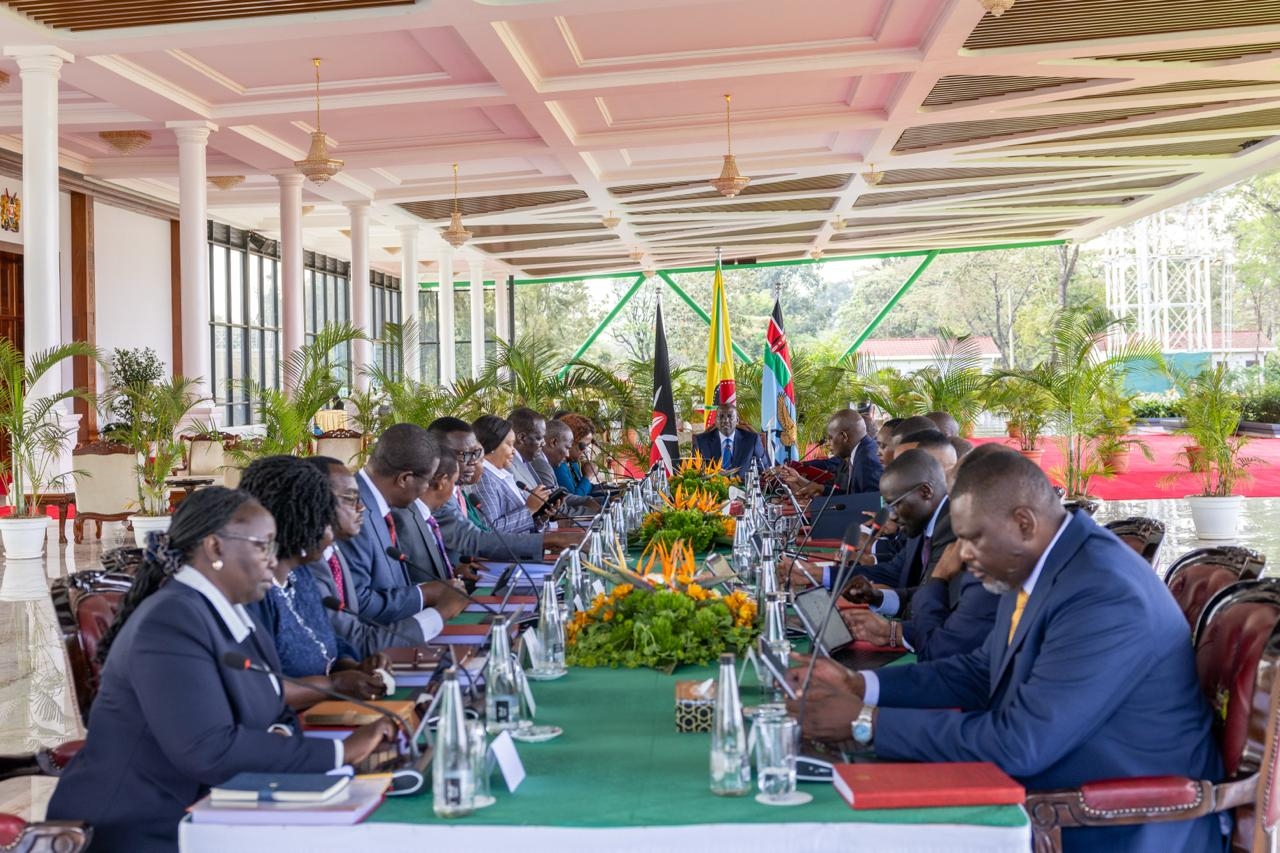The call by Mombasa’s small-scale traders to lower licence fees reflects growing strain on SMEs, amid rising operational costs and a tough economic climate. While the county’s unified permit simplifies processes, associated costs—especially fire and inspection fees—remain a burden for many. KNCCI’s push for predictable, capped increases is a practical proposal that balances county revenue needs with business sustainability. Voices from the SME sector, especially women and youth-led enterprises, highlight a desire to grow beyond survival mode. For long-term success, counties must engage with traders, ease compliance burdens, and ensure timely payments for services to avoid stifling enterprise growth.
 KNCCI Mombasa chapter chairman Aboud Jamal at the
Mombasa International ASK Show on Sunday / BRIAN OTIENO
KNCCI Mombasa chapter chairman Aboud Jamal at the
Mombasa International ASK Show on Sunday / BRIAN OTIENOSmall traders in Mombasa have
urged the county government to reduce licence fees, they say are too high, especially for struggling SMEs.
While the county government has
amalgamated most business permits into a unified single business license—meant
to simplify the registration process—traders say the new system has come with
slightly higher charges, particularly for fire inspection and compliance.
Speaking at the close of the Mombasa
International Agricultural Society of Kenya Show on Sunday, Kenya
National Chamber of Commerce and Industry Mombasa chapter chairman Aboud
Jamal said there must be a balance between revenue collection and supporting businesses.
“Although the unified business
permit has simplified the licensing process, its cost has slightly increased to
help the county bridge funding gaps, especially those caused by delays in
remittances from the national government,” he said.
Jamal acknowledged the county’s efforts to provide public services but stressed the need for predictability and
fairness in taxation.
“We must support our county so it
can continue offering better services to us. But we also urge that license fees
be reviewed periodically with a clear cap, so that traders know what to
expect.”
Jamal said KNCCI had held
several discussions with the county government to find solutions that ensure
small businesses are not overburdened. He added that with each increase in
license costs, residents should also expect improved services in return.
“Businesspeople should not hesitate
to raise concerns, but we must do so in a structured, respectful manner,” Jamal said.
For many SMEs in the region, the high cost of doing business remains a hurdle. Aisha Omar, founder of
Ishmar Expo Ltd — a company that empowers SMEs, women, and youth — said the licence
fees are often too high for micro and small enterprises to sustain.
“Given the current state of Kenya’s
economy, the burden of high licence fees becomes a major barrier for SMEs,”
Omar said. “We don’t want to remain small forever. We’re setting goals—maybe in
the next four to six years, we’ll be able to grow and even export our
products.”
She welcomed support from global
entities like the Islamic Chamber Halal Services, which she said are now
helping Kenyan entrepreneurs tap into international markets.
“We’re glad to see foreign
organisations stepping in to support our business growth.”
Harith Ahmed, another local trader,
cited rising costs of raw materials as a growing challenge for small-scale
manufacturers. “Today, you buy something at one price, and tomorrow it’s already
gone up. The cost of operations keeps increasing,” he said.
Ahmed acknowledged the need for
counties to collect revenue but urged leaders to be more considerate of small
traders.
“The county must take care of SMEs.
If the cost of doing business gets too high, many of us will be forced to shut
down.”
He also pointed out the issue of
delayed payments from the county government for services rendered or goods
delivered.
“Delayed payments are slowly pushing
some SMEs out of business. Timely settlement of bills would go a long way in
supporting small traders,” he said.
At the same event, Taita Taveta
University vice chancellor Prof Fred Simiyu lauded the number of innovations
on display at the ASK show, particularly in agriculture, mining, and the blue
economy sectors. He urged industries to collaborate with academic institutions to commercialise the innovations, many of which align with Kenya’s Vision
2030.
“When we come together—industry,
academia, researchers—we can drive Kenya closer to self-sufficiency and open up
export markets,” Simiyu said.
He encouraged young people,
especially students, to embrace agriculture. “Everyone loves to eat, but few
want to farm. It’s time we changed that mindset if we want to build a food-secure
nation.”
KNCCI’s Jamal reiterated the
private sector’s commitment to supporting economic growth and pledged that the
chamber would help scale up the innovations showcased at the trade fair.
INSTANT ANALYSIS
















